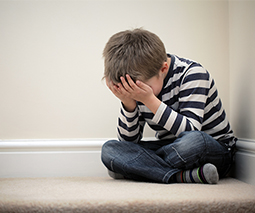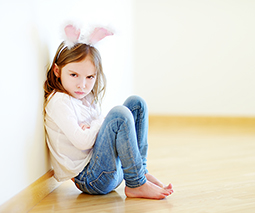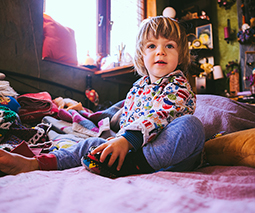The unavoidable necessity of the tantrum

Oh, the tantrum. There is nothing quite like this reality of parenting to have you wishing to all the gods in the land that your kid could just be over this already.
A 101 on tantrums
But what if I told that the pain of the tantrum was just a story concocted by our parenting pop-culture? What if, instead, you knew the real truth behind the tantrum – that it is essential to the growth and development of your child’s brain and sense of self?
Here’s everything you need to know about tantrums so that both you and your child not only survive the tantrum, but also thrive because of it …
1. Tantrums teach self-regulation
Children need to practice coming completely unglued and then calming down, literally thousands of times over the span of their first 10-15 years so that their brains can wire up in a manner that allows them to become capable of self-regulation – the capacity to settle their big feelings on their own.
This flows from something called Hebb’s Law which is basically that “neurons that fire together, wire together.” It means that practice makes perfect. So, bring on the tantrums!
2. Tantrums are not wilful
Behavior always has purpose. Sometimes I hear about people trying to differentiate between tantrums and meltdowns, painting the tantrum as the evil twin of the more innocent meltdown. I call foul on this.
The science of child development does not support this distinction. It is all one and the same and comes from a child who is under-resourced and can no longer hang on to themselves in a given moment. The end.
3. Tantrums signal your child’s hit their limit
Sometimes children become under-resourced and have a tantrum because they are simply just done. They are tired or overwhelmed or hungry or cold or … BLAH! And that is that. The next moment that they have to manage themselves around anything that doesn’t go as perfectly as the way they need it to, there will be a meltdown.
Even adults meltdown in these kinds of situations. Embrace this. It is a beautiful opportunity to develop the capacity for internal self-regulation. After all, you’ve gotta get those thousands of reps in somehow.

4. Lack of guidance can spark tantrums
Other times children become under-resourced because they are young and they really do need guidance and leadership, which isn’t always available to them. This can happen because we as parents are busy and overwhelmed in our day-to-day lives, or for deeper-reaching reasons that have us as parents taking a bit of a back seat when it comes to being a safe and nurturing guide for our children.
Either way, we have to accept responsibility for what is ours and find ourselves capably in the driver’s seat of growing our children and ourselves.
5. The narratives around tantrums should be ignored
It really is all a story. Much of the pop-culture of parenting that drives us in terms of how we think we ought to be responding to our children is derived from our own personal narratives.
This story comes out of generations of big people who have been too overwhelmed by their children to make sense of what is happening during a tantrum. And so we’ve concocted phrases such as ‘the terrible twos’ and the ‘*$#@in’ fours’ and this ridiculous distinction between tantrums and meltdowns, and all the other stories that have us feeling okay about squashing our children’s tantrums because they. are. intolerable!
But what if you had a different story, such as the one outlined in points 1-4 above? Tantrums are normal, healthy, and in fact, essential to healthy development. Try that story on for size and see how it changes your perspective.

We may find that we dread our child’s tantrum – whether it’s because it stirs something up inside of us, humiliates us, or leaves us feeling powerless as a parent. But when we change our lens on this meltdown and recognise that a tantrum is really an opportunity to practice co-regulation with trusted big people, suddenly it doesn’t seem like such a personal attack at all.
A tantrum does not mean that you have failed as a parent – it is simply one of those necessary thousands of ‘reps’ that must be done to ensure a strong and developed brain.
 Need some more toddler behaviour advice? Our Parent School toddler experts can help. Click to find out more or book a one-on-one session.
Need some more toddler behaviour advice? Our Parent School toddler experts can help. Click to find out more or book a one-on-one session.









